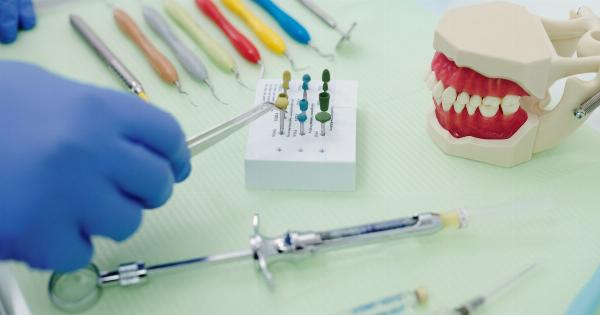When it comes to oral health, prevention is always better than cure. One of the most pressing concerns in dentistry today is the rise of oral cancer.
According to the American Cancer Society, more than 53,000 people in the United States will be diagnosed with oral cavity or oropharyngeal cancer in 2021. However, the good news is that early detection and lifestyle changes can significantly reduce the risk of developing this deadly disease.
In this article, we will explore five important questions related to orthodontic cancer prevention that can change your life.
1. What is Oral Cancer and How Does It Relate to Orthodontics?
Oral cancer refers to any cancerous tissue growth in the oral cavity or oropharynx, which includes the lips, mouth, tongue, cheeks, and throat.
While there are various risk factors for oral cancer, such as tobacco use and excessive alcohol consumption, orthodontics also play a role in prevention. Orthodontists specialize in diagnosing and treating dental and facial irregularities, including correcting misaligned teeth and jaws.
By addressing these issues, orthodontic treatment can contribute to improved oral health and potentially reduce the risk of developing oral cancer.
2. How Can Orthodontics Help Prevent Oral Cancer?
Orthodontic treatment plays a crucial role in cancer prevention by improving oral hygiene and overall oral health.
Crooked or misaligned teeth can create pockets and crevices that trap food particles and bacteria, leading to an increased risk of gum disease and tooth decay. By aligning the teeth and jaws properly, orthodontic treatment can make it easier to maintain good oral hygiene practices, such as brushing and flossing.
Additionally, by reducing the risk of gum disease and tooth decay, orthodontics can help prevent the development of oral cancer.
3. What Are the Warning Signs of Oral Cancer?
Early detection is key to successful oral cancer treatment. It is essential to be aware of the warning signs and symptoms of oral cancer, which include:.
- Unexplained bleeding or numbness in the mouth
- Persistent sores or ulcers that do not heal
- Persistent hoarseness or difficulty in swallowing
- A lump or thickening in the cheek or neck area
- Chronic sore throat
If you notice any of these symptoms, it is crucial to consult an orthodontist or dentist for a thorough examination and appropriate diagnosis.
4. How Can Lifestyle Changes Reduce the Risk of Oral Cancer?
In addition to orthodontic treatment, certain lifestyle changes can significantly reduce the risk of oral cancer. These include:.
- Quitting smoking and avoiding all forms of tobacco use
- Moderating alcohol consumption
- Adopting a healthy diet rich in fruits and vegetables
- Practicing good oral hygiene, including regular brushing and flossing
- Applying sunscreen or using lip balm with adequate sun protection
These simple lifestyle changes, combined with regular dental check-ups and orthodontic treatment when necessary, can greatly enhance your oral health and reduce the risk of oral cancer.
5. How Important is Regular Dental Check-ups and Oral Cancer Screenings?
Regular dental check-ups and oral cancer screenings are vital for early detection and prevention of oral cancer.
During these examinations, your dentist or orthodontist will carefully inspect your mouth, tongue, throat, and neck for any signs or symptoms of cancer. They may also perform additional tests, such as a biopsy or imaging, to confirm a diagnosis or assess the extent of the disease. Early detection through regular screenings can significantly increase the chances of successful treatment and survival.
Conclusion.
Orthodontic cancer prevention is an essential aspect of oral health care. By addressing dental and facial irregularities, orthodontic treatment can improve oral hygiene and reduce the risk of gum disease, tooth decay, and ultimately oral cancer.
Combined with lifestyle changes and regular dental check-ups, orthodontics can play a significant role in preventing and detecting oral cancer early. Take control of your oral health by asking these five important questions and making the necessary changes to protect yourself against this potentially life-threatening disease.




























